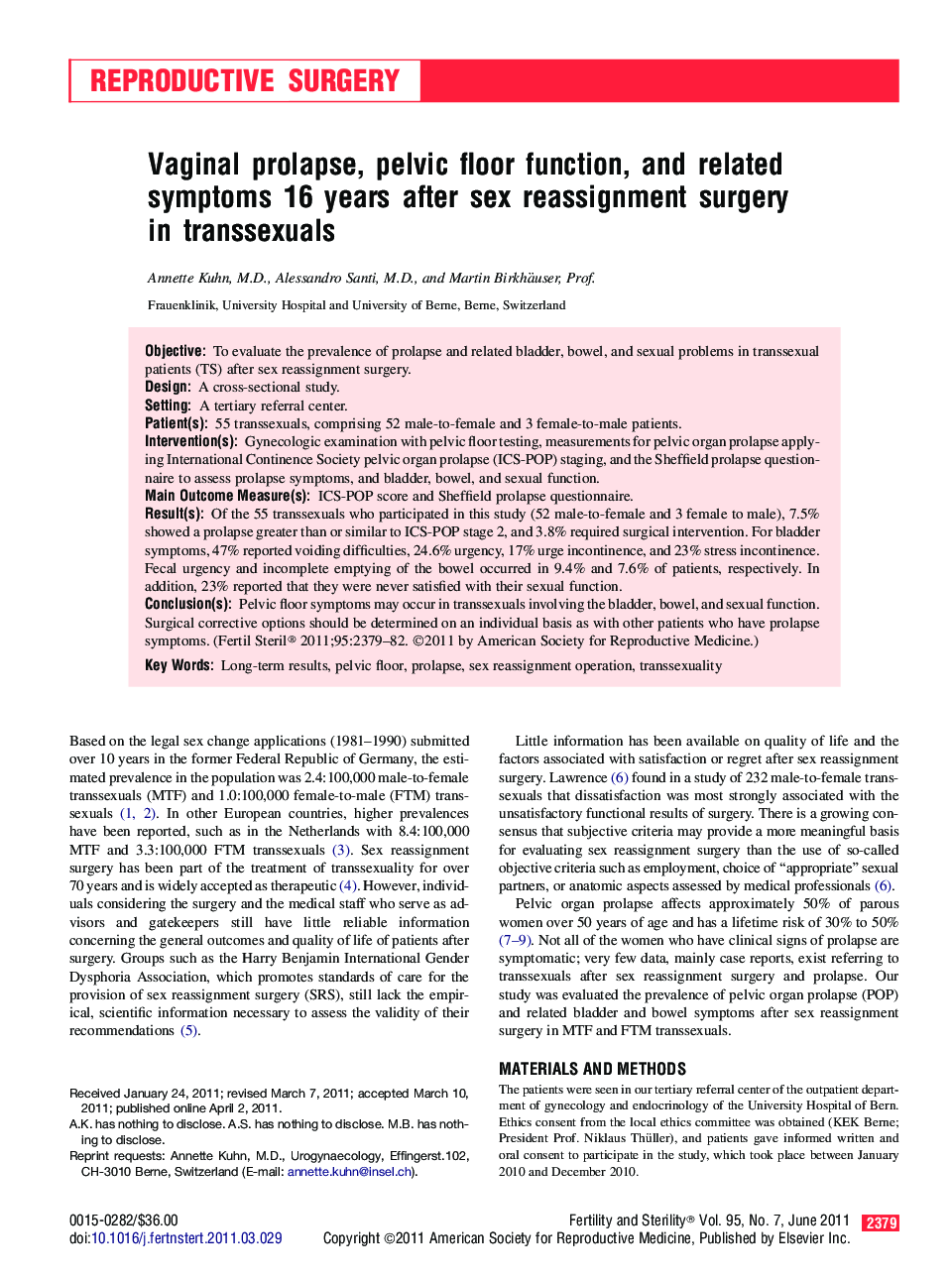| Article ID | Journal | Published Year | Pages | File Type |
|---|---|---|---|---|
| 3937785 | Fertility and Sterility | 2011 | 4 Pages |
ObjectiveTo evaluate the prevalence of prolapse and related bladder, bowel, and sexual problems in transsexual patients (TS) after sex reassignment surgery.DesignA cross-sectional study.SettingA tertiary referral center.Patient(s)55 transsexuals, comprising 52 male-to-female and 3 female-to-male patients.Intervention(s)Gynecologic examination with pelvic floor testing, measurements for pelvic organ prolapse applying International Continence Society pelvic organ prolapse (ICS-POP) staging, and the Sheffield prolapse questionnaire to assess prolapse symptoms, and bladder, bowel, and sexual function.Main Outcome Measure(s)ICS-POP score and Sheffield prolapse questionnaire.Result(s)Of the 55 transsexuals who participated in this study (52 male-to-female and 3 female to male), 7.5% showed a prolapse greater than or similar to ICS-POP stage 2, and 3.8% required surgical intervention. For bladder symptoms, 47% reported voiding difficulties, 24.6% urgency, 17% urge incontinence, and 23% stress incontinence. Fecal urgency and incomplete emptying of the bowel occurred in 9.4% and 7.6% of patients, respectively. In addition, 23% reported that they were never satisfied with their sexual function.Conclusion(s)Pelvic floor symptoms may occur in transsexuals involving the bladder, bowel, and sexual function. Surgical corrective options should be determined on an individual basis as with other patients who have prolapse symptoms.
